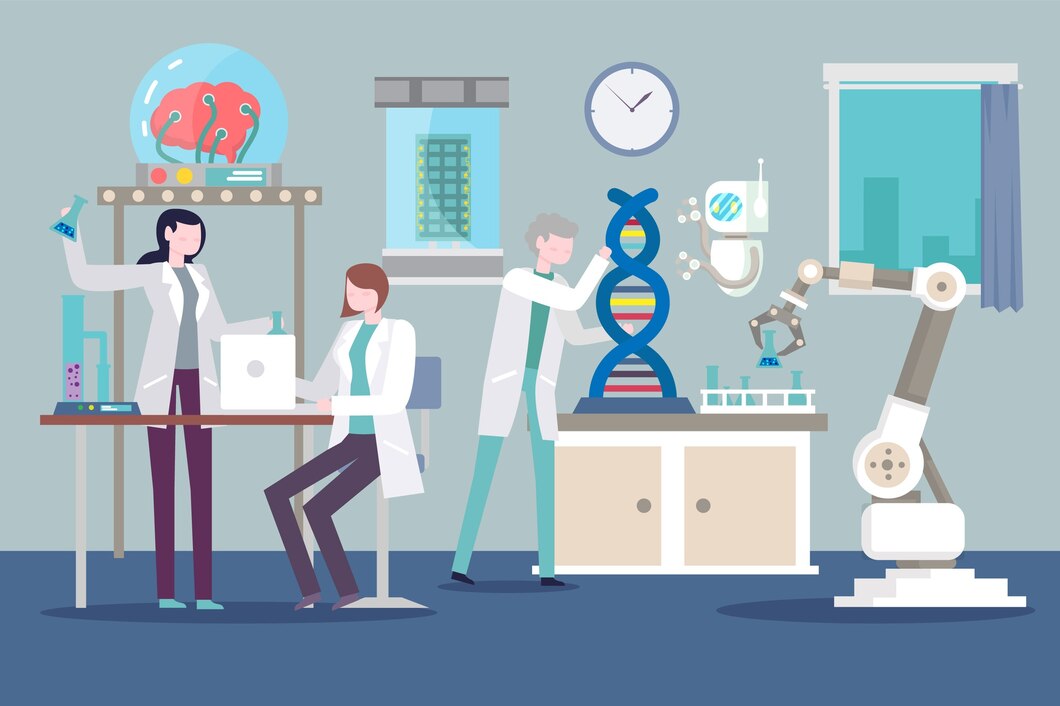Machine learning (ML) is a subset of artificial intelligence (AI) that involves training algorithms to recognize patterns in data and make predictions. In drug discovery, ML is revolutionizing the process by enhancing the identification and development of new drugs, ultimately speeding up the path to market.
Role of Machine Learning in Drug Discovery
-
Target Identification: ML algorithms analyze vast amounts of biological data to identify potential drug targets. By recognizing patterns in gene expression, protein interactions, and disease pathways, ML helps pinpoint the most promising targets for drug development.
-
Virtual Screening: ML facilitates virtual screening by predicting the binding affinity of compounds to target proteins. This process allows researchers to rapidly screen millions of compounds and identify potential drug candidates with high accuracy.
-
Drug Design: ML algorithms can generate novel chemical structures with desired properties. By learning from existing drug databases, ML models can design new molecules that are likely to be effective and safe, optimizing the drug design process.
Benefits of Machine Learning in Drug Discovery
-
Accelerated Discovery: ML significantly reduces the time required for drug discovery by automating data analysis and prediction tasks. This acceleration allows for faster identification of potential drug candidates and shortens the development timeline.
-
Cost Efficiency: By streamlining the drug discovery process and reducing the need for extensive laboratory experiments, ML lowers the overall cost of drug development. This cost efficiency makes it feasible to explore a broader range of drug candidates.
-
Enhanced Precision: ML improves the precision of drug discovery by accurately predicting the efficacy and safety of potential drugs. This precision reduces the risk of failure in later stages of development and increases the likelihood of successful outcomes.
Challenges and Considerations
-
Data Quality: The accuracy of ML models depends on the quality and completeness of the data used for training. Ensuring high-quality, curated datasets is essential for reliable predictions and outcomes.
-
Interpretability: ML algorithms, particularly deep learning models, can be complex and difficult to interpret. Developing interpretable models that provide insights into their decision-making process is crucial for gaining trust and regulatory approval.
Future Directions
-
Integration with Big Data: Integrating ML with big data from genomics, proteomics, and clinical trials will enhance the predictive power of ML models. This integration will provide a comprehensive view of disease mechanisms and potential drug targets.
-
AI-Driven Clinical Trials: ML can optimize clinical trial design and patient selection, improving the efficiency and success rates of trials. AI-driven trials will enable personalized treatment approaches and better patient outcomes.
-
Collaborative Platforms: Creating collaborative platforms that allow researchers, pharmaceutical companies, and healthcare providers to share data and ML models will foster innovation and accelerate drug discovery efforts.
Machine learning is revolutionizing drug discovery by accelerating the identification and development of new drugs. As research and technology continue to advance, ML will play an increasingly vital role in transforming the drug discovery process and improving patient outcomes.




